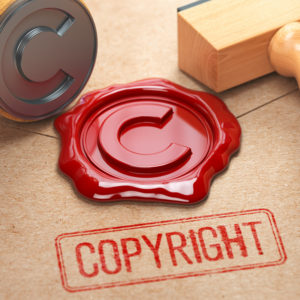Jimi Hendrix’s “All Along the Watchtower.” Whitney Houston’s “I Will Always Love You.” Aretha Franklin’s “Respect.” What do these songs have in common?
Aside from being considered some of the greatest songs of all time, they’re also all covers originally recorded by other artists. Today we often equate cover songs with up-and-coming YouTube artists or local bands, but musical re-interpretation has been a part of music history since the beginning of time. As the Barenaked Ladies said in 1998, “It’s All Been Done Before.”
Shawn Mendes, Pentatonix and Ed Sheeran all started with YouTube cover songs before going on to get their big breaks. Unfortunately, just as the internet has empowered artists and propelled music forward, the recording industry has also manipulated technology and the laws that govern it in order to fill their own pockets and prevent others from achieving success.
YouTube, Twitter, Spotify,, TikTok, Facebook, Bandcamp, Instagram, SoundCloud and any other online platform that artists use to post and share their music operate in compliance with the Digital Millennium Copyright Act (DMCA). This critical piece of legislation was enacted with an eye to the future to provide a flexible legal framework that protects rights holders (including songwriters and musicians) while still supporting the internet’s innovations. Social media and other platforms that allow artists to share their music with millions around the globe exist solely because of the balanced copyright framework provided by the DMCA.
The DMCA also provided for what is called the notice and takedown system. If an artist finds an example where her video or song is being used without permission, the rightsholder provides the platform with “notice” that a user’s post is copyright infringement. Next, the platform will automatically “takedown” the post in question. The original poster is then presented with opportunities to challenge the takedown if it is covered by fair use or other exceptions.
It’s not a perfect system; sometimes mistakes are made and non-infringing content is taken down. However it’s a system that works. Notice and takedown benefits artists by allowing them to enforce their copyrights while still allowing users to post their own content, from cover songs to GIFs and memes. If a cover song is mistakenly taken down because of a copyright claim, under notice and takedown the artist has the ability to challenge the takedown and have the song reposted.
It’s important to clarify that it’s almost always a gatekeeper in the music industry who had the post taken down: music corporations, lawyers that have been assigned collection rights or other middlemen whose job it is to make sure that no one else comes close to touching their artists and songs. Platforms like Twitter are legally required to comply with the notice, whether or not it’s covered by fair use.
The gatekeepers’ entire economy depends on taking a cut from songwriters and musicians, which is why the music industry’s attempts to take down technology are so ironic. After all, the record labels are seeing profits soar thanks to streaming platforms and the Internet. The recording industry announced 2018 as their best year in a decade with $9.8 billion in revenue, and a 42 percent increase in paid music subscriptions from the previous year. Music streaming platforms like Spotify and Pandora have contributed to a booming music industry — more songs, more genres, more listens and more revenues.
So what would happen if notice and takedown went away? You only have to look to accounts that have been falsely flagged and then suspended on Twitter — cover artists, sports team accounts and all kinds of other users and consumers who weren’t infringing on someone’s copyright. Twitter didn’t take down those posts; a music label told Twitter to take down those posts.
Under notice and takedown, users still have the ability to get their accounts and posts back online. Record labels are always pushing for more draconian copyright policies like “notice and staydown” which would take away users’ abilities to challenge copyright claims. Cover artists and other new creators would be left entirely to the mercy of the music industry.
There are serious issues that internet and online platforms are navigating through in the digital age. Copyright is not one of those issues. America’s working copyright framework protects rights holders while still enabling new creativity and innovation to flourish. There are rules in place, and platforms follow them. Notice and takedown works. Efforts to restrict it will only lead to less music, art and culture, less free discussion and less exchange of ideas.

